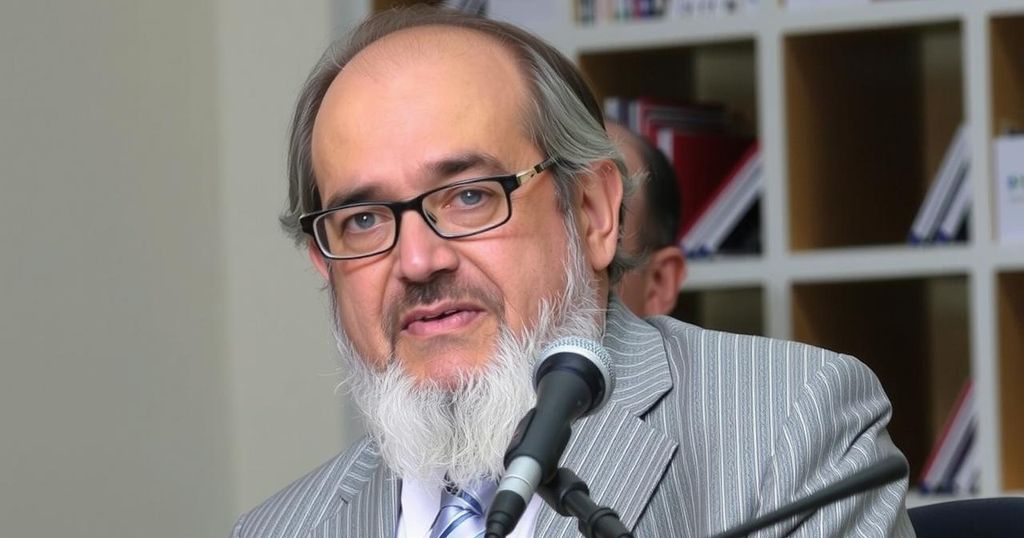Abdel Rahman Yusuf, an Egyptian poet and critic of the government, was detained in Lebanon after celebrating the potential fall of Bashar al-Assad in Syria. His lawyer fears that extraditing him to Egypt could lead to torture, given the country’s reputation for imprisoning political dissidents. Yusuf intends to seek asylum in Turkey due to these risks. His recent public declarations link the Syrian cause to the wider struggles of the Arab Spring.
Abdel Rahman Yusuf, an Egyptian poet and prominent government critic, was detained by Lebanese authorities upon his return from Syria, where he participated in festivities celebrating the potential downfall of Bashar al-Assad. His lawyer, Mohamad Sablouh, indicated that Yusuf is scheduled to face a prosecutor on Tuesday due to a request for extradition from Egypt and the United Arab Emirates. Sablouh expressed concerns that delivering Yusuf to Egypt could violate international standards against torture, particularly Article 3 of the Torture Convention, which prohibits deportation in such cases.
Yusuf, who holds Turkish citizenship, may seek asylum in Turkey rather than face extradition to Egypt, where he risks imprisonment in a country known for its harsh treatment of dissenters, currently incarcerating at least 60,000 political prisoners. He is the son of renowned cleric Yusuf al-Qaradawi and has been an outspoken advocate for democratic uprising since the 2011 Egyptian revolution.
In his video announcement from the Umayyad Mosque in Damascus last week, Yusuf declared his allegiance to the Syrian revolution, linking it to the broader Arab Spring. He asserted, “I am here to celebrate the victory of my revolution. The Syrian revolution is my revolution. The Arab Spring is inseparable. Any attempt to separate the Syrian revolution from the Arab Spring is evil.” He expressed optimism about impending victories in the region, emphasizing that change would not be halted by the efforts of Arab states wary of unrest, specifically naming Egypt, Saudi Arabia, and the UAE as active participants against these movements.
The detention of Abdel Rahman Yusuf highlights the ongoing repression faced by political dissidents in the Arab world, particularly under authoritarian regimes like that of Egyptian President Abdel Fattah el-Sisi, notorious for silencing opposition. Yusuf’s participation in celebrations related to the Syrian conflict underscores the interconnected nature of the Arab Spring, and his call for solidarity across nations emphasizes the collective struggles against tyranny. As a poet and activist, Yusuf represents a cultural voice that reflects growing discontent with oppressive rule, bringing to light the risks faced by those who vocally oppose such regimes.
In conclusion, Abdel Rahman Yusuf’s situation exemplifies the complex interplay of dissent, exile, and the geopolitical ramifications of the Arab Spring. His arrest raises significant questions about human rights and extradition laws in Lebanon, especially concerning individuals at risk of torture or persecution. The broader implications for political prisoners in Egypt and the region remain profound, as Yusuf’s advocacy resonates with many who seek justice and freedom from authoritarianism.
Original Source: www.middleeasteye.net






